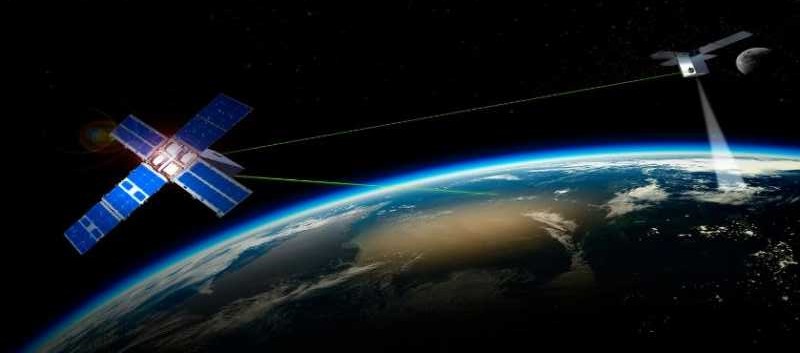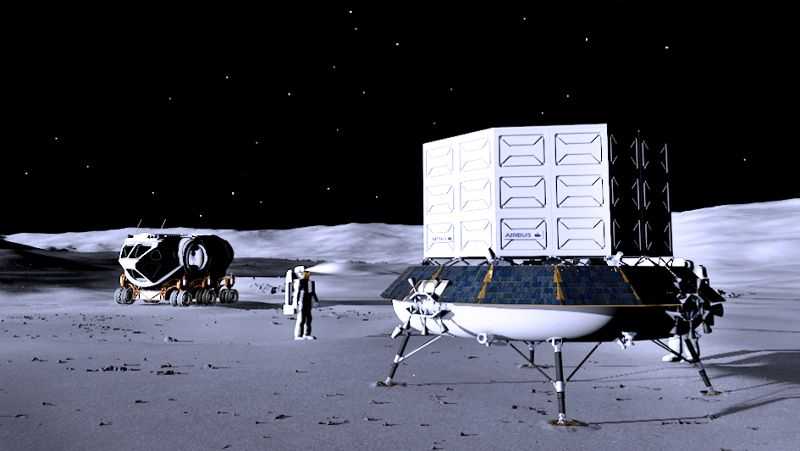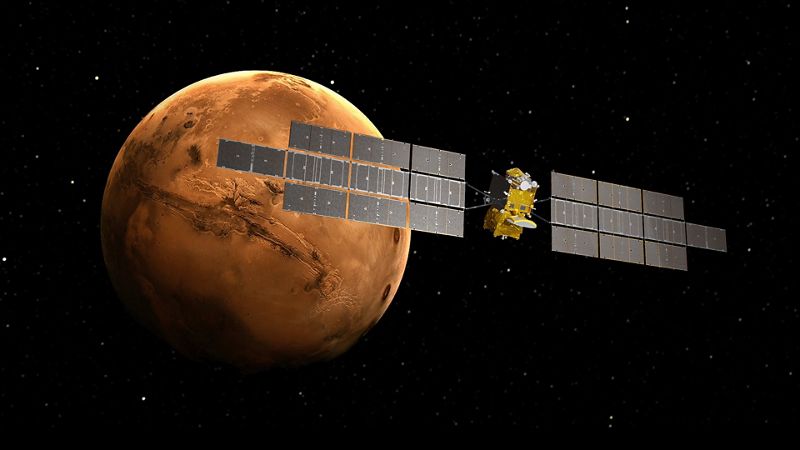 Israel’s president, Rueven (Ruvi) Rivlin, hosted the launch ceremony for the “Beresheet 2” project – the launch of a second Israeli spacecraft to the moon. Israel’s Minister of Science and Technology, Izhar Shay, the CEO of the NPO SpaceIL, Shimon Sarid, the CEO of Israel Aerospace Industries, Boaz Levy, the Director General of the Ministry of Science and Technology, Shai-Lee Spigelman, and the founders of SpaceIL, Kfir Damari and Yariv Bash also participated in the event.
Israel’s president, Rueven (Ruvi) Rivlin, hosted the launch ceremony for the “Beresheet 2” project – the launch of a second Israeli spacecraft to the moon. Israel’s Minister of Science and Technology, Izhar Shay, the CEO of the NPO SpaceIL, Shimon Sarid, the CEO of Israel Aerospace Industries, Boaz Levy, the Director General of the Ministry of Science and Technology, Shai-Lee Spigelman, and the founders of SpaceIL, Kfir Damari and Yariv Bash also participated in the event.
Dozens of youths, school-grade students, and university students took part in the ceremony, alongside the NPO’s volunteers who staff six space centers across Israel: Yarka, Giv’atayim, Ashdod, Be’er Sheva and Jeruslaem.
With the end of the Beresheet 1 project, SpaceIL’s board of directors decided that the best course of action would be to continue on with the “Beresheet effect” and begin work on the Beresheet 2 project. After a thorough processes of investigation and drawing conclusions, the Beresheet 2 project was formed. As part of the project, a spacecraft consisting of 3 individual spacecraft – an orbiter and two landers, will be launched to the moon.
 The landers are expected to land on the moon at two different sites, in order to conduct different scientific experiments. The purpose of the orbiter is to orbit the moon for a number of years and to conduct scientific experiments and educational activities vis-à-vis youth in Israel and around the world.
The landers are expected to land on the moon at two different sites, in order to conduct different scientific experiments. The purpose of the orbiter is to orbit the moon for a number of years and to conduct scientific experiments and educational activities vis-à-vis youth in Israel and around the world.
Jointly leading the “Beresheet 2” project are the Israel Space Agency within the Ministry of Science and Technology and the Israel Aerospace Industries. The Israel Space Agency within the Ministry of Science and Technology views the project as an extraordinary opportunity to significantly advance the civilian space industry in Israel and the study of space in the country, to expand international collaborations and to further the sciences and space subjects amongst Israeli children and youth. The Israel Space Agency within the Ministry of Science and Technology will lead the international collaborations and will establish the necessary ties with the various space agencies. Discussions are already being held with government representatives from a number of countries that have expressed interest in being a part of and supporting the project.
 Israel Aerospace Industries (IAI) will lead the development, planning and system engineering efforts of the Beresheet 2 project. All of the system integrations within the spacecraft will be carried out at IAI. These activities will incorporate all of the lessons learned from the development of Beresheet 1 and will implement IAI’s customary quality assurance processes for space projects.
Israel Aerospace Industries (IAI) will lead the development, planning and system engineering efforts of the Beresheet 2 project. All of the system integrations within the spacecraft will be carried out at IAI. These activities will incorporate all of the lessons learned from the development of Beresheet 1 and will implement IAI’s customary quality assurance processes for space projects.
Seeking to include and advance the next generation on a global basis, “Beresheet 2” is expected to be a multi-national mission led by Israel, with participation of additional countries. School and university students from the participating countries will gain access to deep space, will be able to study information arriving from the orbiter spacecraft, and will push their research and experiments forward.
 Leadership of such an international mission will position Israel as a leader in the global civilian space industry, will help realize the potential of the field of space in the country and will serve as a significant economic growth engine.
Leadership of such an international mission will position Israel as a leader in the global civilian space industry, will help realize the potential of the field of space in the country and will serve as a significant economic growth engine.
Numerical Data:
- The entire spacecraft is expected to weigh approximately 630 kilograms.
- Included in the weight of the spacecraft – each of the landers will weigh roughly 120 kg before landing and roughly 60 kg after landing.
- The launch of the spacecraft is set to take place in the first half of 2024.
- Project budget – approximately $100 million.
- Roughly half of the budget will be funded by the international collaborations. which will be formed by the Israel Space Agency.
- The remaining budget will be sourced from various philanthropic contributors and sponsorships.

Along with the scientific mission intrinsic in the development and launch of the “Beresheet 2” spacecraft to the moon, Beresheet 2 represents an equally significant educational project. Together with SpaceIL, the Israel Space Agency within the Ministry of Science and Technology will steward all of the educational activities with a goal of exposing and piquing the curiosity of the younger generations to the various scientific disciplines and to promote the values of excellence, social leadership, and groundbreaking initiative.
SpaceIL is a non-profit organization established one decade ago by three young entrepreneurs: Kfir Damari, Yariv Bash and Yonatan Winetraub, and which seeks to promote the sciences and scientific education.
In 2019, with the arrival of the “Beresheet” spacecraft to the moon, SpaceIL became the first private organization in history to reach the moon, and in doing so, established the State of Israel as the fourth country to have touched the moon, thrilled millions of people in Israel and around the world, and provided inspiration to the younger generations of scientists, engineers, and dreamers.
Today, in parallel to its work on the “Beresheet 2” project, the NPO organizes the activities of over one hundred volunteers throughout Israel and across all sectors. The volunteers’ work opens before our youth the challenges of space and encourages them to dream big make their dreams a reality, in light of Beresheet’s inspiring journey.
About the Israel Space Agency within the Ministry of Science and Technology
The Israel Space Agency (ISA) within the Ministry of Science and Technology Initiates and leads all civilian space activities in Israel. The agency provides special support for scientific research and development with real economic potential, such as developing unique and novel technologies. The ISA’s objectives are many and varied, and they include expanding collaborations and ties with different countries in the area of space; advancing infrastructure research within the academic and research institutions; investing in startup companies that develop components for the Israeli and global space industries; developing and constructing satellites for civilian purposes and supporting the development of innovative and unique technologies in the space industry; nurturing the backbone of future scientists in the field of space research through space education and community projects; and, in general, to enhance Israel’s comparative advantage in the field and positioning it amongst the leading nations in the world of space research and exploitation.
Another important goal of the ISA is to strengthen the connection of children and youth to the topic of space, to help satisfy the tremendous curiosity naturally evoked by the subject and to enrich their knowledge and interest in it. The ISA initiates activities and events that afford first-hand experiences in the space-related fields, and organizes activities and observational events, national competitions, technological initiatives within schools, training programs for instructors and more.
Israel Aerospace Industries (IAI), Israel’s “House of Space”, is a global leader in the development and manufacture of advanced systems in the areas of aviation, space, sea, land and cyber, for the military-defense market and for the civilian market. Israel’s space program relies on the impressive infrastructure of technologies developed by IAI in collaboration with Israel’s defense community, academia and the Ministry of Science and Technology. The State of Israel, through Israel Aerospace Industries, is one of the only countries in the world with all of the necessary skills and capabilities to maintain a space program: planning, development, production, launching, and the operation of satellites and complex space systems. Since the launch of the first Israeli satellite, Ofek 1, in 1988, IAI has launched many satellites into space and the company continues to develop deep space research technologies and to pursue international collaborations, and this alongside its ongoing activities in developing and constructing satellites for the company’s customers in Israel and internationally.






